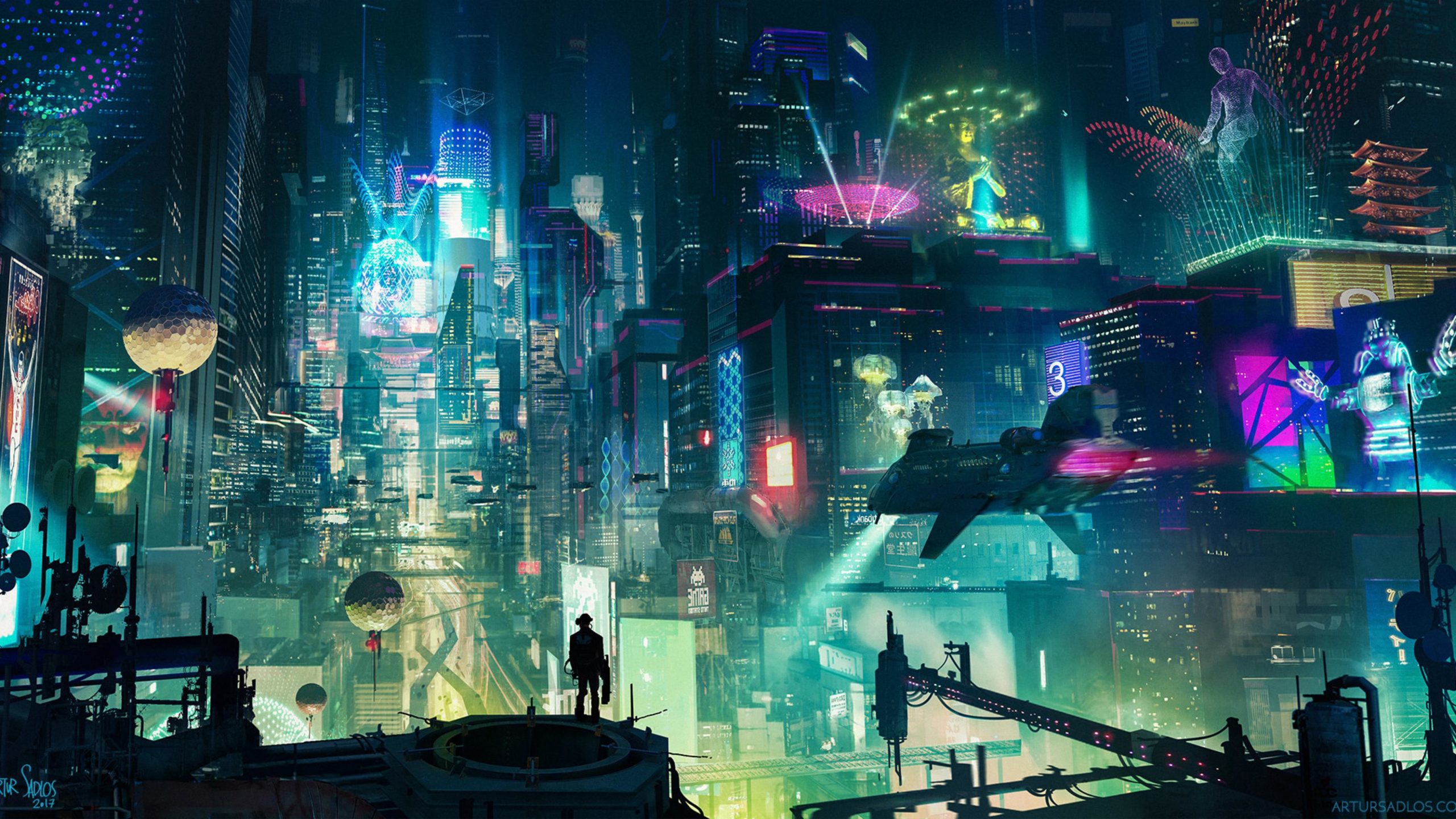When someone (or some agency) ‘says what you are’ then this means that they control you absolutely. There is no more perfect form of control – ‘Once you label me, you negate me’ says Kierkegaard. Needless to say, we don’t see tend to things this way; this is in fact totally contrary to how we see things. We don’t see anything wrong with being defined! We allow ourselves to be defined by society all the time without giving the matter a second thought; we also allow the people we know (our friends, family, associates, etc.,) to say who we are, and not only do we ‘allow’ it, we invite it, we want it. In order to be approved of (which is what we really want) we first need to fit into other people’s definitions of who (or what) we are; this is what ‘being approved of’ means – it means being defined (in a positive way) by those around us. We’re one of the so-called good guys, not one of the so-called bad ones, we’re in the ‘golden circle’. We can only approve of what we know however – nobody approves of what they can’t understand. We can only be ‘accepted’ when we fit into a predefined category therefore, and we’re in one hell of a big hurry to do this.
The need to be accepted or approved of by others is one of the most motivating forces there is in ordinary life. When we talk about ‘making something of ourselves’, we’re talking about ‘making it in the eyes of others’, when we talking about ‘doing well’ in life we’re talking about ‘doing well within the terms of the game we’re all playing’. It’s the recognition or validation that comes from the group that we’re hungry for, and yet by pursuing this need we are very effectively nullifying ourselves. We are nullifying ourselves since all we’re really doing is ‘seeking to be defined by others’, as if being defined by others were somehow ‘the greatest thing ever’! When we ‘succeed’ then what we are succeeding at is ‘not being who we really are’ – the more we succeed the more ‘lost’ we become, and every step we make in this direction is applauded by our peers who are also ‘lost’. We are rewarded for letting others (the institution of society) say who we are. The blind are leading the blind and this is widely considered to be ‘a good thing’…
It’s not as if as there is any sense of genuine well-being that is going to come our way of as a result of being defined by others, as result of gaining kudos or approval in the eyes of those around us. How could there be? If I have become successful beyond my wildest dreams all this means is that I have become ‘what everyone says I should be’, or ‘what everyone says is a good thing to be’, but this is merely a public performance – something that is done for the sake of an imaginary audience. The price of social acceptance is to lose sight of everything that really matters to us and being trapped in a life of thinly disguised meaninglessness. Being ‘who we aren’t’ (but who the collective wants us to be) doesn’t bring us any sense of well-being, in other words – being socially adapted so that we fit in just society’s categories doesn’t bring us mental health, only a very unpleasant feeling of hollowness that we are then obliged to continuously struggle against by chasing more and more approval, more and more external validation. The only ‘cure’ for the bad feeling that is created by immersing ourselves in the fake reality is to buy into that fake reality all the more. ‘In for a penny, in for a pound’, as it is said…
Once we have allowed ourselves to be defined by society then we are locked into the path that has been laid down for us, therefore. We are at this stage thoroughly addicted, just as Anthony de Mello says, to external validation, and this means that we have to keep on striving to obtain the next goal and then the next goal after that. That’s the only option open to us. It might feel good when we get a hit of the ‘approval’ but the hit soon wears off and then we have to go looking for the next one, and all the time we keep on getting hollower and hollower, hungrier and hungrier… If this sounds similar to the description of ‘hungry ghosts’ in the Preta Realm of Buddhist cosmology, this is no accident! To be a hungry ghost is to be a denizen of what Chogyam Trungpa – using the Western approach – calls the Neurotic Hell Realms, and he stresses that this isn’t just ‘some place we may go to when we die’ but that it is a real psychological state in everyday life. William Roy Parker – a contemporary Buddhist – comments on the Preta Loka (the world of the hungry ghosts) in this excerpt taken from his website Mandala of Love –
The physical environment of the Preta Realm is one of desolation and ugliness. Traditionally it is imagined as a lifeless wasteland, but it could equally be imagined as a crumbling urban landscape of dilapidation, dirt and neglect. It might even be imagined as resembling a particularly ugly and characterless modern shopping mall in a dystopian future, where the pitiless commercial imperative has swept away all individuality and created a hard and soulless architecture which is devoid of the light of humanity, even as it is brightly lit by fluorescent lights and the illuminated logos of the retail corporations.
These internal dream-like landscapes are inhabited by the pretas – pitiful beings who, although they are very frail, having thin legs and arms, and tiny thin elongated necks, also have large bloated bellies. Their faces are contorted by despair and starvation, and they have large eyes and tiny mouths. Always in the grip of un-namable inner pain and a crushing emotional emptiness they are compulsively driven by an overwhelming craving for anything that appears to promise momentary relief. These are beings who have lost all discernment as to what is beneficial, nourishing, or satisfying – and what it not. Tradition tells us that in their desperate scavenging, the pretas will even eat excrement.
The Preta Realm gives us eloquent images of the most extreme outcome of the downward spiral of egoic Feeling – if we are unlucky enough to fall that far. The distended bellies and large eyes symbolise appetite, while the thin weak limbs symbolise the disembodiment and vulnerability that comes when fear of painful feeling becomes a desperate unwillingness to feel. The tiny mouths and thin necks symbolise the inability to effectively take in nourishment. Tradition tells us that the un-nutritious food that the pretas do manage to eat turns into sharp blades in their stomach, or turns into fire and burns their mouths.
Even if we’re not particularly ambitious, not particularly competitive and driven in our lives, we’re still allowing ourselves to be defined, we’re still seeing ourselves in the way that society demands we see ourselves. We’re still following the formula. We have been given a picture of ‘what life is all about’ that we never think to question and our lack of questioning this picture makes a total mockery of our entire existence. It makes a total mockery of our existence because as long as we’re living on the basis of this ‘generic’ picture then we’re enacting it in everything we do, and as a result the generic is all there is. We’re never going to go ‘beyond the generic’, not ever. We haven’t the courage to question it, to test it and as a result we become what Krishnamurti calls ‘second-hand people’ – we’re living the life of ‘who our conditioning says we are’ and we are doing that within the context of ‘an unreal world that only exists because we all think it does’. This is of course the premise of the film The Truman Show, and that film itself is a modern-day restatement of the core Gnostic Myth of the ‘False Creation’.
We’re ‘free’ in the sense that we can do whatever we want on the terms of who we have been defined as being (just as we are free to do whatever we want as long as it is within the artificial parameters of the fake world that has been provided for us) but since we aren’t who we have been told we are (and since the world we have been given is totally fake) this so-called ‘freedom’ doesn’t really amount to very much! It amounts to an unholy mockery of what is meant by the word ‘free’. We can say that the System of Thought that is defining both us and the world we believe in: [1] contains no freedom, and [2] doesn’t ever permit us to leave its domain, not by so much as a hair’s breadth. Thought is a prison we can’t escape from, therefore. Our automatic labelling of the world (and of ourselves) is a prison we can’t escape from. Being defined is a prison we can’t ever escape from…
The only thing a man should be concerned about when he is in prison is escaping from that prison’, says Gurdjieff. That’s all that matters in this situation! Instead of concerning ourselves with the question of ‘how to free ourselves from the prison of the mind’ however our Number One Motivation is to adapt to that prison to the very best of our ability. That’s how we get acceptance, after all – that’s how we get to garner kudos or approval. The human race has never been as keen to define itself as it is in the present day; this has become a major obsession for us – we are extraordinarily concerned with our identity and what that identity is or what it is not. We are all het up about whether other people recognise our identity or not, accept it or not, and it seems to us that this is where our freedom lies. This is the message we hear on all side; this is the message that is continually being rammed down our throats.
We want to define who or what we are as tightly as possible, and the reason we want to do this this is – of course – because we honestly believe this will benefit us. For others to accept us as being who ‘we ourselves define ourselves as being’ seems like the ultimate freedom to us. We’re trying to be ‘the perfect ego’, we’re trying to reach the ‘ideal narcissistic state’. From the outside, it looks as if it will be a truly great thing, a truly wonderful thing (which is of course why we pursue it so diligently). From the inside however it’s a very different story. When we do succeed in becoming ‘the perfect ego’ we discover that it’s not such a great thing after all. Encouraged every step of the way by our fellows, by the society we live in, we have succeeded in becoming hungry ghosts…
Image – freaskbeatsedm.substack.com






